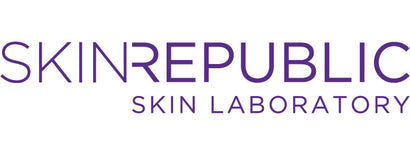Your Cart is Empty
FREE SHIPPING ON ORDERS OVER $120
FREE SHIPPING ON ORDERS OVER $120
Shop
Best Selling Glycolic Acid Oxygenating Mask
Exfoliate, brighten and refine skin texture with the ingredient on everyone's skin.
Best Selling Glycolic Acid Oxygenating Mask
Exfoliate, brighten and refine skin texture with the ingredient on everyone's skin.

LEARN MORE
Learn
Skin pH: What is it and why should you care?
Skin pH: What is it and why should you care?
4 min read

Its official. pH is becoming the new collagen!The skincare market has begun to introduce pH focused products such as moisturisers, toners, and cleansers.If you're like most people, you probably don't think about the pH of your skin on a day-to-day basis. But the fact is, it can have a big impact on the appearance and health of your skin.The skin’s pH is constantly changing based on your diet, sleep, the products you are using, and environment you live in.
So, what is skin pH, why does it matter and how can you maintain healthy levels?
What is skin pH?
Firstly, pH actually stands for potential hydrogen which is basically the balance and/or ratio of acid-alkaline. Taking it back to basics, pH is a scale from 1 to 14 that measures the acidity or basicity of any substance. Remember the scale from chemistry at school? Bleach has a pH of 12, making it highly base, lemon juice is highly acidic with a pH of 2, and water is considered neutral with a pH of 7.
Every part of the human body has an ideal pH level, generally fluctuating between 4.5 and 5.5. This slightly acidic pH helps protect our skin from germs and free radicals, as well as keeping it hydrated and nourished.
However, it’s important to remember that your skin pH is constantly changing. The products you’re using, your diet, sleeping patterns, skin routine, air pollution, the season and skin type all play a role in the pH of your skin.
Gender and age can also have an effect:
- Women usually have more alkaline skin, tending towards the higher end of the range.
- As you age, your skin also becomes more alkaline, particularly as women go through menopause.
Okay, but why does it matter?
pH has a big impact on how your skin functions, your skin barrier, cell turnover, hydration, bacteria growth and sensitivity.
If your skin’s pH becomes too alkaline, its ability to stay hydrated becomes affected which can lead to dryness, sensitivity, redness and irritation. It can also exacerbate pre-existingconditions such as dermatitis or rosacea.
If your pH balance becomes too acidic, your skin may feel oily or greasy, feel irritated and be more prone to inflammation.
How can I test my skin’s pH?
While skin pH can be measured using at-home kits or by dermatologists, there are also several common signs that may indicate your skin’s pH is off. Skin that is soft and supple means your skin pH is in a healthy range.
Some of the signs to look out for are:
- Dryness – if your skin feels tight and dry after cleansing, or if you notice it consistently feeling dry, it’s likely your skin is more alkaline.
- Acne – Have your breakouts increased lately? Or have they become increasingly inflamed and sore? This could be due to your skin’s pH decreasing and becoming more acidic.
- Sensitivity and redness – When your skin pH changes, your skin function is interrupted which can lead to higher sensitivity, reactivity and redness.
- Inflammation – Any inflammatory skin conditions are an indication that your skin pH is off.
- Accelerated aging – We all age. But if you notice an increase in your fine lines and wrinkles over a short period of time, your skin may have increased in pH.

What’s the best way to restore the pH balance of my skin?
There isn’t just one ideal skin pH type, there’s no one-size-fits-all way to maintain a balanced skin pH. Some of our Skin Republic products that we recommend are:
- Our Skin RepublicVitamin C 6% & Alpha Arbutin 1.5% Serum that restores pH levels in the skin, targets dark spots, freckles, evens pigmentation and leaves natural glowing skin. Vitamin C helps to keep your skin hydrated by reducing water loss and thus, retain moisture. It also helps collagen production.
- Our 2 stepHyaluronic Acid + Collagen Biodegradable face mask eliminates dry, dull skin cells, soothes and nourishes the skin. This gentle exfoliant assists with removing dirt and clears pores and clogged skin. It is a must have staple to your skin care routine!
- To rebalance healthy pH levels, we recommend using ourSpots and Blemish + Salicylic Face Mask Sheet that includes ingredients such as tea witch hazel, tree oil, and salicylic. Witch Hazel is an ingredient that can help oily skin types to achieve a pH balance.
One of the main ways people upset their skin pH is by being too aggressive in their skincare regime. Here are some other tips to ensure your skincare routine will help maintain a healthy skin pH:
- Avoid over exfoliating, both with physical and chemical exfoliators. Over exfoliation can damage your skin barrier and the pH of your skin with it.
- Use gentle cleansers formulated for your skin type. Try to avoid soap-based cleansers, which are highly alkaline and will strip your skin and dry it out.
- Try to avoid showering or washing your face in super-hot water. The hot water can strip your skin and affect your skin barrier function.
- Use moisturisers, oils and serums that support and repair your skin barrier. Look out for ingredients like Hyaluronic Acid, Niacinamide, Green Tea, ceramides and fatty acids.
- Wear sunscreen! SPF helps protect your skin from the sun, which will prevent damage to your skin barrier.
As with most skin issues, a healthy lifestyle is key to maintaining healthy skin. So, ensure you’re eating a healthy diet rich in fruits and vegetables and drinking plenty of water every day.
If you have any serious skin concerns, consult a dermatologist who can recommend the best products for your skin type and issues.


